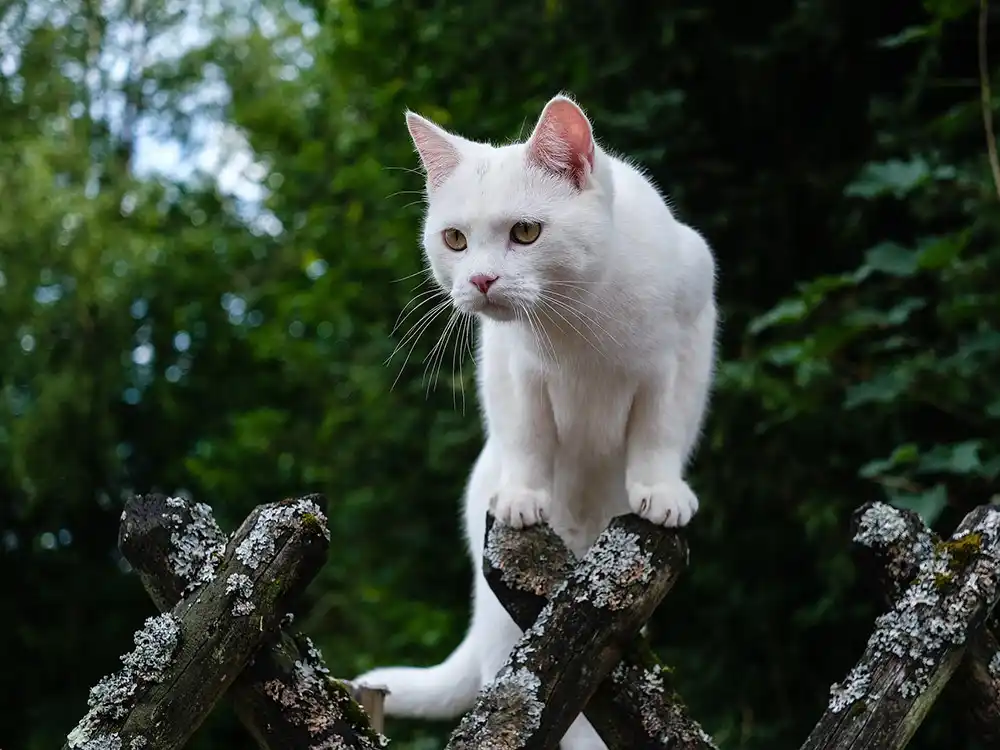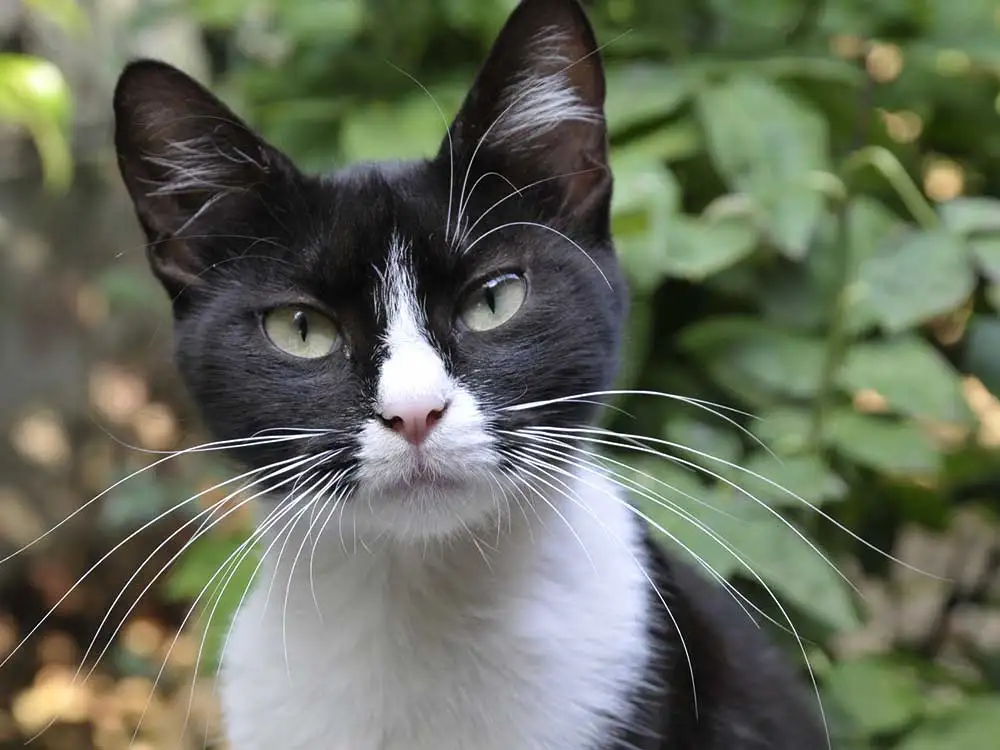Ever found yourself exasperated with local cats using your garden as their personal playground, or worse their bathroom? If so, you’re in the right place. Today, we’re talking about plants to deter cats, a natural and harmonious method to protect your beloved flora from these adorable but sometimes troublesome furballs.
Why Use Plants to Deter Cats?
Ever noticed how cats tend to avoid certain plants like the plague? That’s because certain scents are just a no-go for them. But it’s not just about getting these whiskered wanderers off your property; using plants to deter cats comes with a host of benefits.
Working with Feline Nature
First and foremost, it’s essential to remember that cats have an incredibly keen sense of smell, far stronger than ours. They use it to interpret their surroundings. Certain plants give off odors that cats find unpleasant or simply unattractive. These smells, often pleasant to us, act as a natural barrier, gently dissuading cats from making themselves at home in your garden.
A Harmonious Solution
Another significant advantage of using plants to deter cats is the peaceful, respectful nature of the solution. These plants provide a subtle yet effective strategy that doesn’t harm the cat or disrupt the harmony of the garden. Instead of creating a hostile environment, you’re merely encouraging the cats to roam elsewhere.
Plants Serving Dual Purposes
Beyond their primary function as cat deterrents, these plants offer additional benefits. They contribute to the garden’s aesthetic, often bringing color, texture, or interesting foliage.
Many of these plants also attract beneficial insects or repel other pests. For instance, lavender not only deters cats but also attracts bees and butterflies, supporting local pollinators.
Environmentally Friendly Approach
Using plants to deter cats aligns with eco-friendly practices. You’re not using chemicals or materials harmful to the environment – just leveraging the natural traits of particular plants. It’s a peaceful negotiation between you, the cats, and Mother Nature, with respect for all parties.
Long-Term, Low-Maintenance Solution
Finally, employing plants as your primary cat deterrent presents a long-term, low-maintenance solution. Once these plants are thriving in your garden, they’ll keep doing their job with minimal effort on your part. Unlike deterrents that require constant reapplication or upkeep, plants just need basic gardening care.
Top Plants That Deter Cats
Alright, let’s explore in greater detail some of these wonderful plants to deter cats. Not only will you learn why they work so well, but also how to use them to their full potential.

Catnip
This might come as a surprise, but catnip is indeed a useful plant in the grand scheme of things. This plant is like cat candy – they absolutely love it. Planting it in a dedicated area away from your primary garden can lure cats towards it and away from where you don’t want them. It’s kind of like creating a kitty diversion. Just remember, this one could backfire if you’re not careful!
Lavender
Lavender is a multi-purpose warrior in your garden. Cats generally don’t like strong herbal smells, and lavender is no exception. Its robust aroma is something that cats find unpleasant. The upside for us, however, is quite the opposite. Not only do humans find the scent of lavender calming and therapeutic, but its vibrant purple flowers also add a stunning splash of color to your garden.
Rosemary
Rosemary, another potent aromatic herb, is well-known for its culinary uses. Yet, it has another beneficial trait – it’s a fantastic plant to deter cats. Its powerful fragrance, which is generally disliked by cats, is your secret weapon. Another bonus is that this herb thrives in various conditions, making it a reliable ally in your garden.
Common Rue
Common rue is an interesting plant. It’s not as common in gardens as some others on this list, but it’s worth considering. Cats are not fans of its strong scent. The good news is, this plant is pretty hardy and can do well even in less-than-ideal soil conditions. It’s worth giving common rue a shot if other methods haven’t worked.
Coleus Caninus
Funnily enough, this plant has earned the nickname “Scaredy-Cat Plant” because of its effectiveness in keeping cats away. When the leaves are touched, they release a smell that cats find distasteful, but it’s barely noticeable to us humans.
If you’re looking for a plant that’s really focused on the job of deterring cats, this could be the one for you.
Lemongrass
As we’ve already noted, cats tend to dislike citrus scents. That’s where lemongrass steps in. This plant emits a citrusy fragrance that will have cats turning their noses up. What’s great about lemongrass is its dual role: not only is it a good cat deterrent, but it’s also fantastic at repelling mosquitoes. Two garden pests, one plant!
Pennyroyal
Pennyroyal, a member of the mint family, is a strong-smelling plant that cats find disagreeable. However, it should be used with caution, as it can be toxic if ingested. So, if you have pets or children that might be prone to tasting your plants, it’s best to avoid this one.
Lemon Thyme
Lemon thyme brings a delightful citrus fragrance to your garden that you’ll likely enjoy, but cats – not so much. This plant also serves as a lovely ground-cover plant, so it’s an excellent choice if you’re looking to add some low-maintenance charm to your space while also serving as a cat deterrent.
Citronella
Citronella is more commonly known for its mosquito-repelling qualities. Still, its strong citrusy aroma also makes it an effective plant to deter cats. It’s a hardy perennial that can add some tropical flair to your garden while serving a practical purpose.
Incorporating these plants into your garden can create an invisible and aromatic barrier against curious cats, without harming them or disturbing the aesthetic and sensory charm of your outdoor space. Remember, our goal isn’t to create a cat-free world, but to coexist with our feline friends in a way that’s respectful to them and your plants!
How to Use These Plants in Your Garden
The art of using plants to deter cats effectively lies in strategic placement. Start by identifying the areas of your garden where cats are most active or where you particularly want to keep them out, such as vegetable patches or flower beds. Plant cat-repelling plants around the borders of these areas, creating a protective ring.
Consider creating a mixed planting scheme, combining different deterrent plants. This approach not only enhances the overall visual appeal of your garden but also offers a more potent cat deterrent.
Cats are clever creatures, and they may get used to the smell of a single plant over time. However, a mix of scents can confuse them, making your garden less appealing.
As for plant care, most of these plants are fairly low-maintenance. They require a sunny spot and well-drained soil to thrive. Regular watering, especially during dry spells, and annual pruning (for certain species like lavender and rosemary) will keep them healthy and robust. Remember, healthy plants produce stronger scents, making them more effective at deterring cats.
Alternative Solutions to Keep Cats Away From Plants

While plants to deter cats make a powerful and natural solution, it’s not the only strategy out there. You might find a combination of methods works best, so let’s look at some other options.
Motion-Activated Sprinklers
A highly effective, non-harmful deterrent is the motion-activated sprinkler. Cats hate getting wet, and a quick spray of water when they enter your garden can discourage future visits. It’s the surprise more than anything that sends them scurrying away, and after a few encounters, they’re likely to give your garden a wide berth.
- SENSOR-ACTIVATED YARD SECURITY SPRINKLER – The heat and motion-activated sensor detects movement up to 40 feet away, triggering a burst of water to keep unwanted visitors away
Pest Repellent Spray
Pest repellent sprays can also be useful in keeping cats away. There are many natural sprays on the market that emit smells cats find unpleasant. Spritz around the edges of your garden or on plants that cats seem to be especially drawn to. Remember, though, to ensure any spray you use is non-toxic and safe for all animals.
- Organic cat repellent naturally trains cats to keep out of your garden
Lesser-known tips for deterring cats
Sure, we’ve covered a fair bit already, but let’s dive into some lesser-known tricks that might just turn your garden into a no-go zone for cats.
Making the Perfect Brew
This trick is a favorite among seasoned gardeners. As it turns out, your morning cup of coffee can serve a dual purpose – it can help kick-start your day and deter cats from your garden! Cats dislike the strong smell of coffee. So, simply sprinkle used coffee grounds around your plants. This has the added benefit of acting as a fertilizer, enriching your soil with nitrogen.
Are you a fan of citrusy drinks? If you enjoy a glass of fresh lemonade or orange juice, don’t throw away those citrus peels. Cats dislike citrus smells, so scattering citrus peels in your garden can help keep them away. Some gardeners report success from sprinkling powdered peppers on the soil. Just dehydrate some hot peppers from your garden and crush them up.
It’s worth noting that while these tricks can be effective, they will need to be repeated regularly as the smells will fade over time or after rain. But if you’re already enjoying these beverages, it’s a simple step to give your garden a bit of added protection.
As with everything, remember to use these methods in moderation, as too much can alter the pH level of your soil.
Building Barriers
If you’re still struggling to keep cats at bay, building barriers could be the way to go. It could be as simple as placing chicken wire around your garden beds or installing a net around your plants. Cats dislike walking on the wire and will find it hard to get through the net. It might not be the most elegant solution, but it’s worth considering if you’re dealing with particularly stubborn feline visitors.
Every cat is different, so you might need to experiment with various plants to deter cats, along with these additional methods, to see what works best for your situation.
Conclusion
In conclusion, your garden doesn’t need to be a playground for the neighborhood cats. By using plants to deter cats, you’re choosing a peaceful, natural, and beautiful solution to keep your garden in top shape.
Why not give it a try and see how it transforms your gardening experience? We’d love to hear your stories and tips – so don’t forget to share!
FAQ: Plants That Deter Cats
What is the most effective cat deterrent?
The most effective cat deterrent often depends on the specific cat. However, many find a mix of cat-repelling plants, like lavender and coleus caninus, and motion-activated sprinklers very effective.
How do I stop cats pooping in my garden naturally?
Planting plants to deter cats, using coffee grounds or citrus peels, and installing chicken wire or netting around plants can deter cats from pooping in your garden.
What do cats hate to walk on?
Cats dislike walking on uncomfortable surfaces like chicken wire, gravel, or spiky mulch. They also avoid slippery surfaces such as plastic or tin foil.
Do marigolds keep cats away?
While some people find marigolds helpful in deterring cats due to their strong scent, others don’t report the same success. It could depend on the cat’s individual preferences.
How do you make homemade cat repellent?
You can make a homemade cat repellent by mixing a few drops of essential oil (like citrus or eucalyptus) with water and a bit of dish soap. Spray it around your garden to deter cats.










